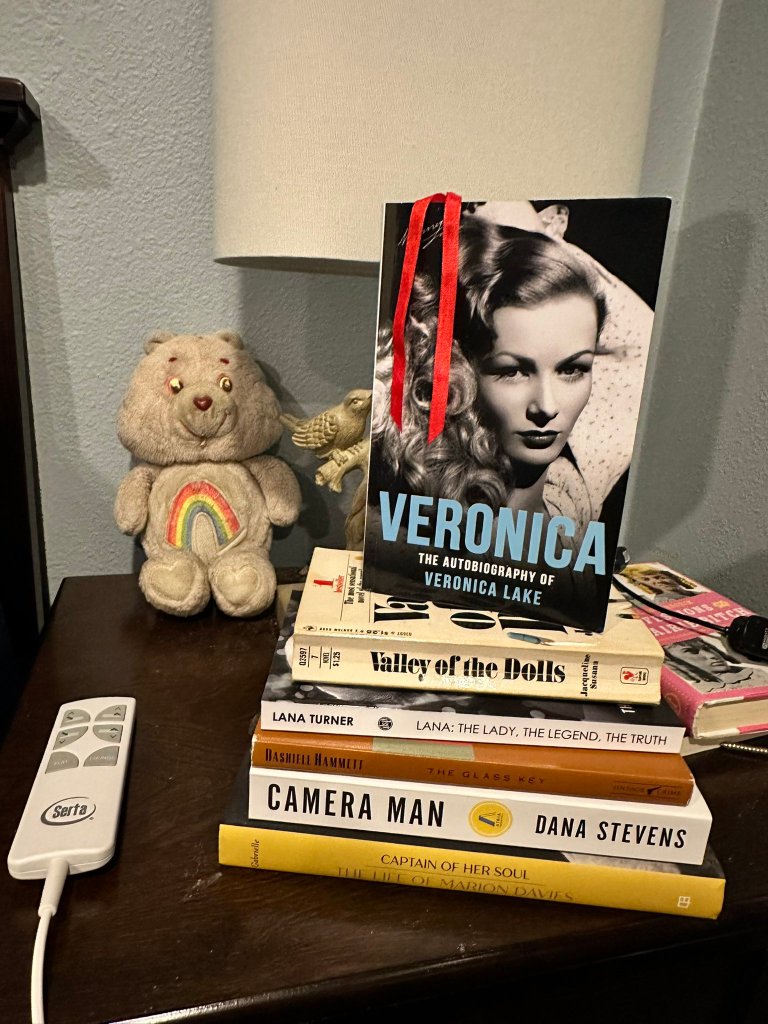
This year, for a change of pace, I’m actually reading books for Raquel Stecher’s annual Classic Film Reading Challenge, instead of my usual MO of signing up and then not actually reading anything. For my first book, I read Veronica Lake’s autobiography, the aptly titled Veronica: The Autobiography of Veronica Lake. A very straightforward, no frills title, but I think that it fits its author. Throughout her memoir (co-written with Donald Bain), Lake very matter-of-factly tells her life story, without making any excuses and without being pretentious. She doesn’t dwell on the negative in her life, and just accepts everything as-is. While she seems very confident and certain as to who she is at some points, at other times she is lacking in self-awareness.
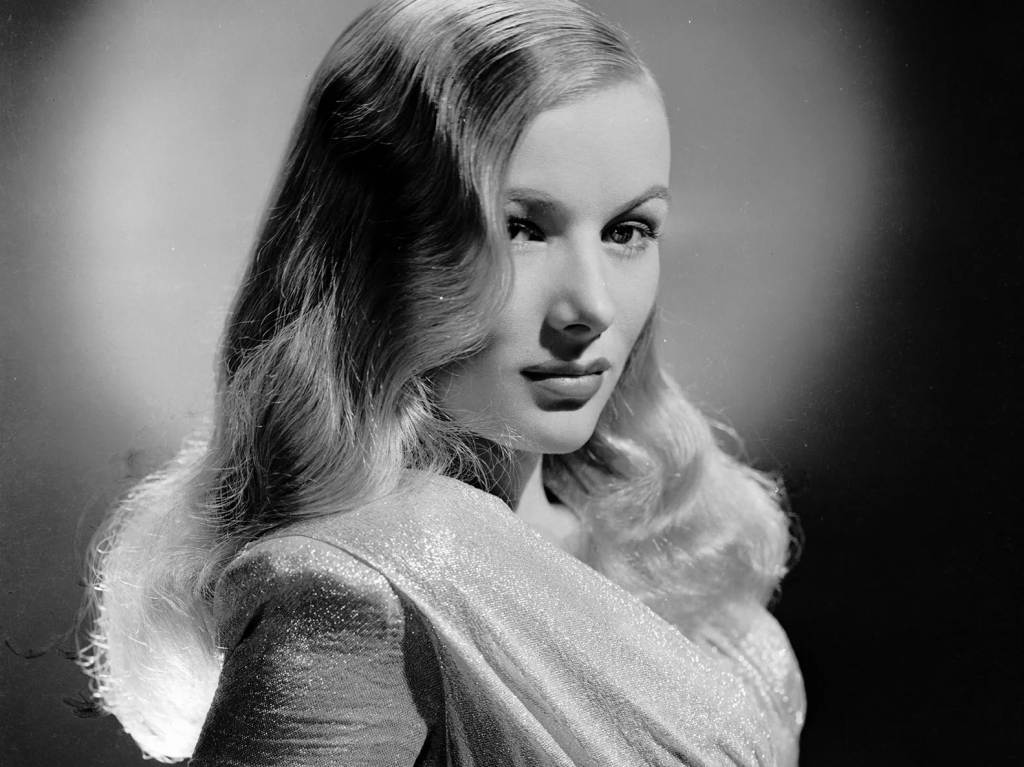
One of the main stories about Veronica Lake that swirls around is that her Hollywood career ended partly due to her alcoholism and unprofessionalism. In her memoir, Lake disagreed with these assessments and stated that she left Tinseltown on her own accord. She says:
“I decided it was time to make Hollywood a thing of the past. At this point, cynics will say that quite the reverse was true; Hollywood decided to make Veronica Lake a thing of the past.”
“I set foot in Hollywood again in June 1952, to obtain my final divorce from André [DeToth]. I’ve never been back since.”
Veronica’s memoir is conventional in format. It starts off with her birth in Brooklyn, NY on November 14, 1922. She was christened with the name Constance Frances Marie Ockleman. Veronica explains that she’s been juggling the Veronica/Connie dichotomy since she was given her stage name by producer Arthur Hornblow in 1940. For all intents and purposes, she says that she is writing her book from the viewpoint of “Constance Ockleman,” as she has lived her life, NOT Veronica Lake.
“Veronica Lake is a Hollywood creation. Hollywood is good at doing that sort of thing. Its proficiency at transforming little Connie Ockleman of Brooklyn into sultry, sensuous Veronica Lake was proved by the success of the venture. And the subject, me, was willing and in some small ways able. I don’t mean to imply that Veronica Lake is pure past tense. I still sign my checks Veronica Lake. My telephone is listed under that name. And, in general I am still Veronica Lake. But it would be spurious to write this book from Veronica’s point of view. Constance Ockleman has been the veracious liver of the life, and she’s the proper person to tell the story.”
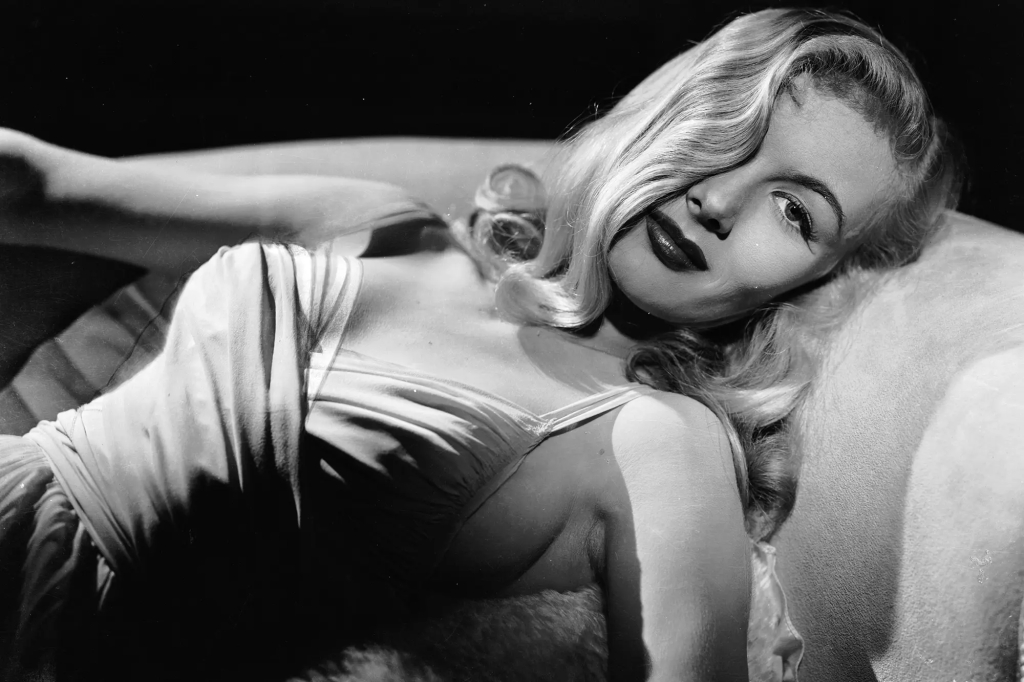
The first half of the book is typical Hollywood celebrity fare. Veronica’s father passed away in 1932 when she was 10. Her mother remarried and eventually the family moved to Miami, FL where she spent her formative teen years, and also competed in some beauty pageants. In 1938, when she was 16, she and her family moved to Beverly Hills, CA. Veronica took acting classes and acted in plays and took on small roles in films, until she was cast in her first big film, Mitchell Leisen’s I Wanted Wings (1941). This turned out to be her breakthrough part.
Lake then discusses her Hollywood career as it fit in with her personal life. She was dating and soon married to her first husband, John S. Detlie. The couple soon had a daughter, Elaine. Curiously enough, Lake talks about how beautiful her child was and how proud she was to have her. This is an interesting juxtaposition to the end of the book, when Lake casually mentions that Elaine, now an adult, is married with three children. But she never sees her. Lake’s nonchalance about her lack of contact with her child is very telling. It’s hard not to see that her devotion to being apathetic about everything could also be viewed as selfish. As many of these stories go, as Lake’s star rises, her marriage to Detlie falls apart. He cannot handle her success.
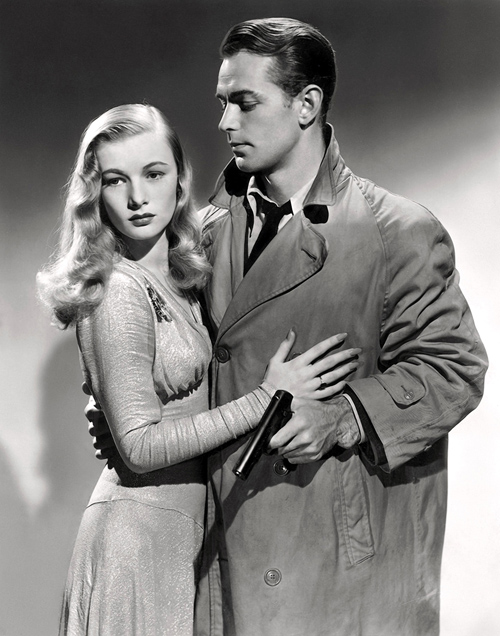
One part of the book that I found interesting was her discussion about frequent co-star Alan Ladd. Lake and Ladd are one of the fabled on-screen Hollywood teams, often held up as one of the cream of the crop. I thought that the two stars might have been close, having worked together so often, but Lake only devotes a small paragraph to him in her book. She also stated that while Ladd was on the shorter side, he wasn’t as short as people seem to believe.
“Alan Ladd was a marvelous person in his simplicity. In so many ways we were kindred spirits. We were both professionally conceived through Hollywood’s search for box-office and the types to insure that box-office.”
Later, she writes:
“Alan Ladd was a superb psychopathic killer. He could be cool, placid, all-observing and knowing or just plain nasty. He was all these things in his career and a nation reacted enthusiastically. There is no actor with whom I’m more closely connected than Alan Ladd. And yet we had less to do with each other than most other acting teams…both of us were very aloof people. We were a good match for each other. “
Later, Veronica would casually comment that Alan Ladd died while her boyfriend/drinking buddy, Andy, was away. But there was no further reflection about working with him. She just matter-of-factly stated that he had passed. Coincidentally enough, both Ladd and Lake would die at the age of 50. Ladd in 1964 and Lake in 1973.
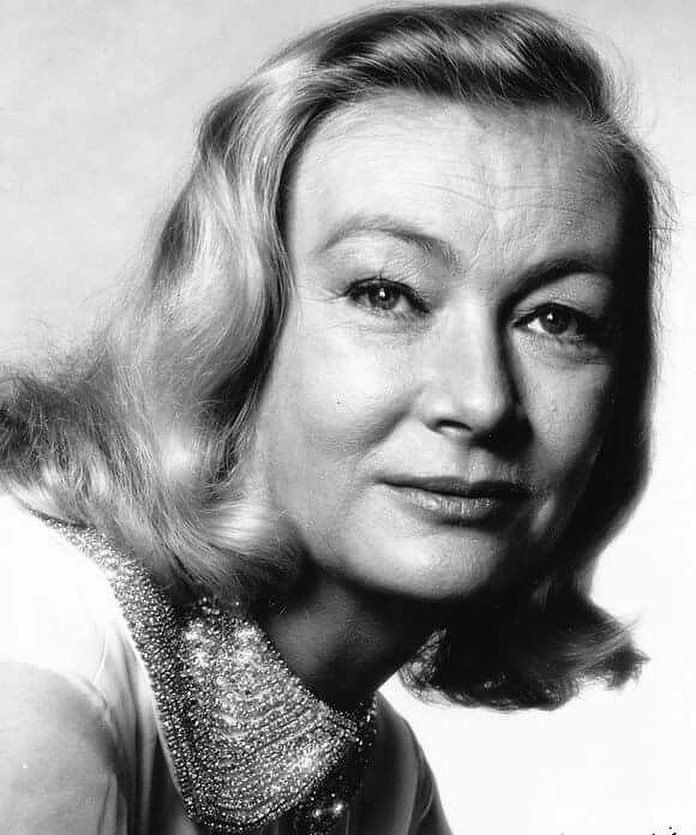
These little asides are a common motif throughout Veronica’s book. She would talk about her marriage to so-and-so and suddenly, she’s describing the sex they had together. After finishing the book, there is one thing for certain, Veronica Lake liked sex. She describes a few sexual encounters she had and they’re just randomly thrown in, to add some color I suppose. Another common theme is that Veronica Lake liked to drink. She seems to recognize that perhaps she imbibes a little too much, but doesn’t seem to really care. As she tells her life story, she will casually throw in little comments here and there, like talking about the cookbook she wants to write:
“Some day, I’m going to write ‘The Veronica Lake Cookbook.’ And with the glutted, totally confused cookbook market these days, my book will be a welcome addition. It will not be exotic. It will not be ethnic. It will not specialize in 1,000 chocolate chip recipes or what to do with leftover potato chips. It will be simple and fraught with easy dishes to whip up when you’re drunk or tired or both.”
The ending of Veronica’s life is somewhat depressing, but she doesn’t dwell on it. After Hollywood, she moved to New York and was making a living doing television and summer stock. Her summer stock career somewhat ended when she broke her ankle in a dancing accident, and forced her to lay low for a couple years. She always seems to be living paycheck to paycheck and having to take jobs, such as the infamous job as the bartender at the Martha Washington Hotel, or low-paying acting work. Lake spent her last decade drinking in bars with her sailor boyfriend Andy, until he died from multiple alcohol-caused ailments. I got the sense that Lake had more or less given up and didn’t really seem to care.
This was not the best autobiography I’ve ever read, it wasn’t hysterical like Errol Flynn’s, and wasn’t as fascinating as Desi Arnaz’s, but Veronica Lake’s book definitely gave more insight into a very interesting and unique on-screen persona. After finishing the book, the conclusion I came to was that despite trying to get away from Veronica Lake and her hair, Connie Ockleman really was “Veronica Lake.” She was aloof, seemed indifferent about everything, but with that tiny sense of danger lurking in the background.
“Veronica Lake, movie star, was a tiny but luminous beacon of sexiness and sass who shined bright and cool during the dark days of World War II.”
Eddie Muller
All quotes are taken from:
Lake, Veronica. Veronica: The Autobiography of Veronica Lake. 1969. Revised ed., Dean Street Press, 2020.

An good review of a book about Lake. I was not that familiar with her acting, though in my late teens/early twenties I was often told I looked like her.
LikeLiked by 1 person
Veronica is gorgeous, so lucky you if you resemble her! I hadn’t seen much of her acting either until I saw her three films with Alan Ladd. She doesn’t have a huge filmography, but I’ve been trying to watch what I can!
LikeLiked by 1 person
It was a long time ago….:(
LikeLiked by 1 person
I’m so glad you are participating in the challenge this year! I have this memoir but haven’t read it yet. I am surprised she didn’t talk more about Alan Ladd but it sounds like he wasn’t that terribly important in her life. I’m curious about both her self-awareness and her lack of caring about certain things. I appreciate your thorough and honest review!
LikeLike
Thank you! I am trying. I hope I can get all 6 books finished, we’ll see; but I’m trying. I’m in the middle of Lana’s book right now. Veronica surprisingly doesn’t really seem to speak at length about anyone. She spoke quite a bit about her first husband, though she married young so it could be that that experience just had a profound impact on her. She also devoted many pages to her last significant partner, her (more or less) drinking buddy, Andy. Alan Ladd had about 2 paragraphs and a single sentence about his passing. But Alan’s death came at the time of something involving Andy (I can’t remember now), and she seemed more preoccupied with that.
She seemed self-aware that she was making poor decisions, or that she wasn’t following through on certain responsibilities–such as with her children. She had 4 children, though one passed about a week after his birth. She devotes some space to discussing the births of her children, but it seemed that once the marriage to that child’s father was over, her relationship with the child was over too. As far as I can tell, all the children were raised by their respective fathers. Towards the end of her book, there is a really sad part where her son is getting into trouble constantly and Veronica can’t take it. She sends her son to LA on a plane to stay with her ex, Andre de Toth. When the son arrives, Andre shows up and immediately puts the kid back on a plane to return to Veronica in New York. The son never even left the airport. I cannot imagine being that poor kid who learns that neither parent wants him around. Her son kind of hangs out with her a little longer, but eventually goes his own way. Veronica just nonchalantly mentions that she doesn’t see him often. Her oldest daughter is married with children at the end of the book, but Veronica doesn’t seem that interested.
She is so aloof about almost everything and seems aware enough to realize that she’s a poor mother, she drinks too much, etc. But she doesn’t seem to care enough to do anything about it. She talks about her drinking but doesn’t seem to realize that she’s an alcoholic. She works sporadically in her last decade, but it seems that she only worked enough to not be homeless for a little while and to fund her drinking. When her movies would air on the TVs in the bar where she worked, she would be proud of being “Veronica Lake” and would capitalize on her former past as a movie star if it meant getting work or booze. But she wouldn’t use her former fame as a way to get steady work. She seemed to have success doing local theater and television and probably could have at least made steady income, but she didn’t seem interested in doing that.
Her book was interesting but also have a somewhat depressing vibe that permeated the entire book. In the end, I feel like she wasted her potential, all due to her own vices and personality.
Lana’s book is already turning out to be more hopeful and interesting. She’s about to divorce Artie Shaw…
LikeLike
Life account ought to be more rigid. It ought to stick more to the principles of news coverage – expecting that reporting has reality. The journal gives you more extension, is more idyllic, and permits you to mess with your own life.
LikeLike